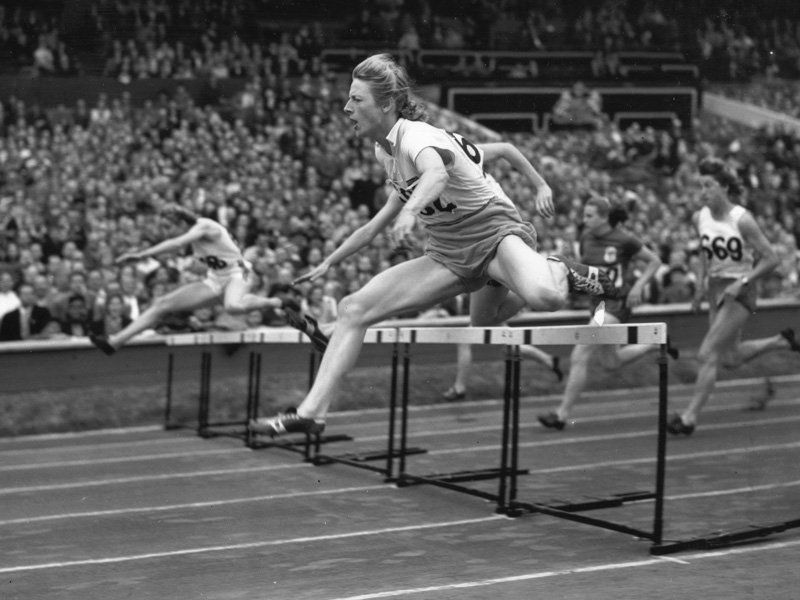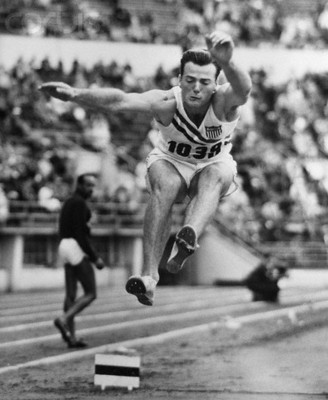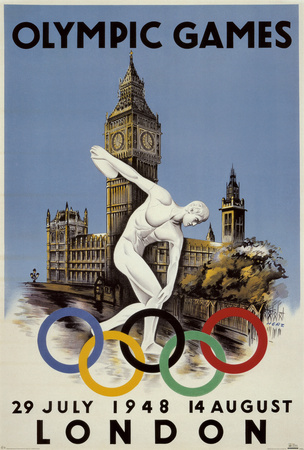The 1940 Games of the XII Olympiad had been awarded to Tokyo and were due to be held from 21 September to 6 October. But they were stripped of the honour at the 1938 IOC congress because of their participation in the 2nd Sino-Japanese War.
Helsinki who had been runners up in the original bid process when subsequently awards the games, the new schedule was for them to take part from 20 July to 4 August. Of course the outbreak of an even bigger war led to the IOC cancelling the XII Olympiad.
Helsinki would host the XV Olympiad in 1952, Tokyo eventually the XVIII in 1964.
In June 1939 the XII Olympiad was awarded to London on the first ballot, beating bids from Rome, Detroit, Lausanne, Athens, Budapest, Helsinki and Montreal. A few months later Europe was at war, at the end of the war it was decided that London should host the next scheduled games in 1948 unelected because it had missed out, despite 10 rival bids.
So having sorted all that out, on to the Games themselves:
Nations 59 (+10)
Competitors 4104 (+141)
Sports 17 (-2)
Events 136 (+7)
Hosted by London, United Kingdom 29 July to 7 August 1948
Once again as after the First World War the main instigators of the War, Germany and Japan were not invited. Though Austria and Italy (who had changed sides after deposing Mussolini were invited. The Soviet Union were again invited but did not send any athletes.
However, there were new nations coming to what were known as the Austerity Games in the post war climate. British Guiana (now Guyana), Burma (now Myanmar), Ceylon (now Sri Lanka), Iran, Iraq, Jamaica, Korea, Lebanon, Pakistan, Puerto Rico, Singapore, Syrria, Trinidad & Tobago and Venuzuela were all first time official attendees. Philippines, India and Pakistan were all competing for the first time as independent nations, the first from the USA, the other two from the first division of the old Indian Empire from British control. Pakistan already had natives who were Olympic gold medallists the first being Feroze Khan who had taken part in the 1928 winning Indian hockey team, when he passed away in 2005 aged 100 he was the oldest surviving Olympian at that time. Korea similarly had already won gold with the 1936 Marathon winner Sohn Kee-chung, who had competed for the occupying Japanese.
 |
| Jamaica's first two Olympic medallists Arthur Wint taking the tape ahead of Herb McKenley in 400m final |
 |
| "The Flying Housewife" in flight on the way to 80m hurdles gold |
At the time she was engaged to a triple jumper from the 1928 Games who thought women had no place in sport, until he fell for his future wife. They were married in occupied Netherlands in August 1940 and when she had her first son in 1941 everyone thought her career as an athlete was over. However, within weeks of the birth she resumed training. Now 12 years later and the mother of three children she appeared in London and stole the show. With gold in the 100m, 200m, 80m hurdles and 4x100m Fanny Blankers-Koen had equalled the record of Owens. She was also the first Dutch Athlete of either gender to win gold.
 |
| White future congressman can jump |
Bob Mathias would go on to complete a decathlon double 4 years later in Helsinki, the first decathlete to do so, a feat only repeated by London's own Daley Thompson. From 1967 to 1975 he served as the Republic Congressman in the US House of Representatives for the 18th District of California, before this was redrawn and renumbered in the 17th for the elections of 1974, he lost out by less than 5000 votes or 3.8% on the gerrymandered boundaries.
Top medal earner of the London Games was Finnish gymnast Veikko Huhtanen he tied on a score of 38.7 along with his compatriots Paavo Aaltonen (also Gold in the vault and Bronze all-around) and Heikki Savolainen (bronze 1928) for Gold in the Pommel Horse. He earned gold in the all around helped by silver medal performance in the Parallel Bars and Bronze in the Horizontal Bar, although only 0.7 points clear of the Walter Lehmann (Swi) in silver and a further 0.2 to Aaltonen. With the team picking up a total of 7 apparatus medals out of 18(21) as well as Gold and Bronze in the individual all around secured the team gold. These were the first golds that Finland had secured in Gymnastics.
In the women's Gymnastics event, which was only a team event, Czechoslovakia won. This achievement is all the more astounding when you learn that one of the Czech gymnastics, Eliška Misáková, took ill after arriving in London and despite all the best efforts died of polio just before the contest started. One of the team mates was also her sister Miloslava who ended up contributed the 4th best scores of all the women gymnasts.
Indeed although there was no official individual all around the medals should have been:
- Gold - Zdeňka Honsová (Cze) 54.85
- Silver- Edit Parényi Weckinger (Hun) 54.25
- Laura Micheli (Ita) 53.65
- 4th Equal Miloslava Misáková (Cze) Mária Zalai-Kövi (Hun) 53.4
See also: Full list of Olympiad posts



No comments:
Post a Comment